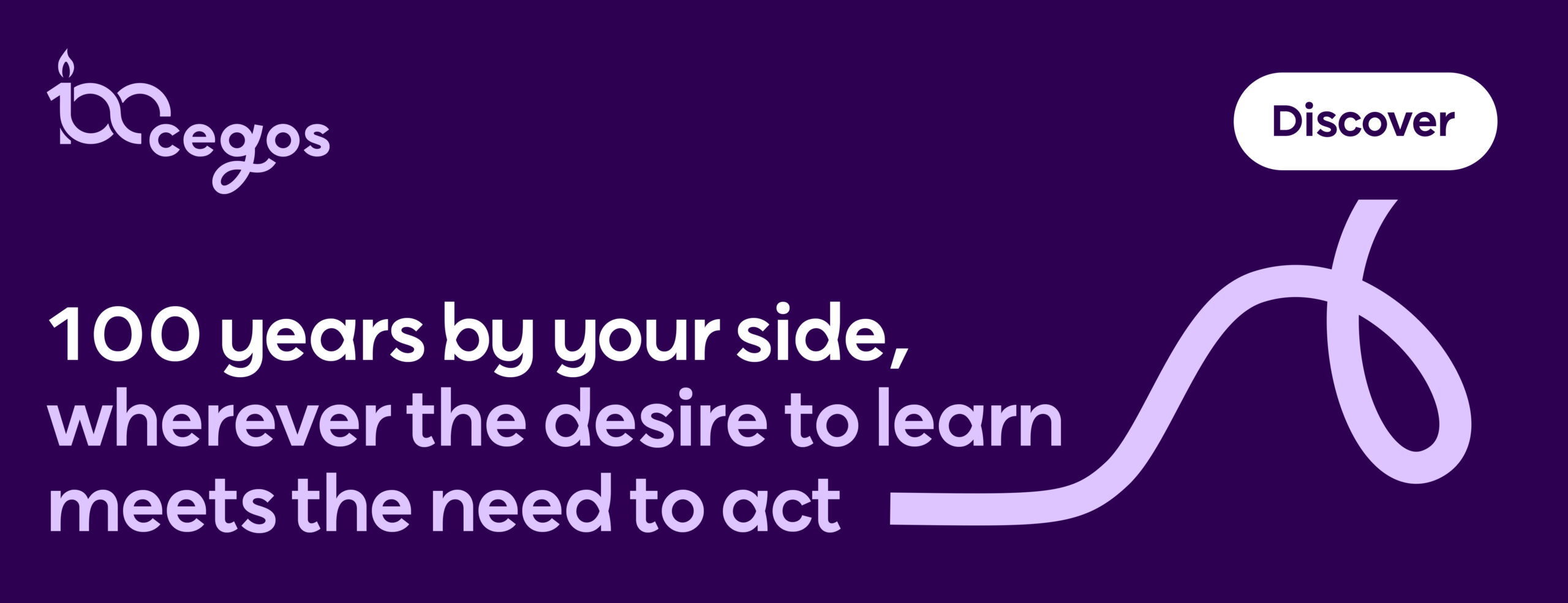

Huge changes in the way we work, and the explosion of Artificial Intelligence, are transforming the HR sector into something almost unrecognisable compared to even a few years ago.
Cegos Group recently carried out its annual barometer survey – entitled Radioscopy of Human Resources Departments – to find out exactly how that role is changing, along with the impact HR has on issues like strategy and employee mental health.
The survey was carried out in 9 countries across Europe (France, Germany, Italy, Portugal, Spain, United Kingdom) and Latin America (Brazil, Mexico, Chile). We polled 5,052 employees and 554 HR decision-makers in private and public sector organisations about future challenges in human resources.
Several headline issues emerged from the findings.
1) HR decision-makers play a key role in the transformation of organisations
HR functions lay at the heart of organisational change. 68% of employees believe their HR department supports technological developments, such as Artificial Intelligence, the digital transformation of jobs or the digitalisation of the function. 81% acknowledge HR’s role in supporting societal developments, such as gender equality, inclusive HR policy, health in the workplace, etc.
60% of HR respondents support the development of professional skills (55%) and the challenges of diversity and inclusion (54%).
Yet many confront major strategic challenges such as attracting talent and recruiting (45%), retaining talent (41%), supporting transformation (35%) and developing skills (upskilling and reskilling).
Artificial Intelligence is seen as a significant emerging trend in working practices. However, almost 70% of HR Managers say they have not yet taken AI into account in their day-to-day work.
HRDs are also expected to support social challenges facing their organisation. They are called upon to promote a better work-life balance for their teams (47%) by improve health in the workplace (combating work-related stress and psychosocial risks, 46%).
Shockingly, 79% of HRDs and 71% of employees feel that companies’ social climate is part of a context in which human relations within organisations have worsened.
2) HR managers’ experience is a critical asset in supporting change
HR professionals are generally highly experienced. 80% of HR Directors having been in the job for more than 3 years, and 32% have more than 10 years' experience.
While 59% of respondents say they have worked in HR for several years, 41% previously held another position. This reflects a diversity of HRD profiles, with 46% coming from other business lines.
The vast majority of international HRDs feel their role has changed. 87% believe they have broadened their scope, whereas 85% say their role has become more strategic.
59% also believe that the HR function has become simpler thanks to the automation of tasks and the streamlining of procedures.
Employees have a different vision of the HR function today and how it should ideally operate. They see the need for HR experts to be better communicators (61% overall) and more strategic (47%).
Supporting the development of employee skills is by far the most attractive aspect of the job (56%) for HR managers currently holding a position. This is followed by:
- Supporting organisational change and transformation projects (37%)
- Enabling HRDs to exert their influence to regulate human and organisational situations (37%)
- Supporting organisational performance (35%)
3) The speed and frequency of change puts pressure on HR professionals
In recent years, HR professionals have dealt with many operational emergencies linked to the health crisis and the explosion in hybrid working, while trying to retain a strategic dimension to support transformation.
On a day-to-day basis, 70% remain absorbed in managing emergency situations. On the international level, 48% of HRDs anticipate greater involvement in CSR issues (psychosocial risks, well-being at work, diversity and equality) over the next five years.
HR professionals also expect to carry out their role in a virtual environment, with more virtual processes (46%). This challenges the proximity expected by employees and the need for the human dimension.
The five main factors driving the evolution of HR practices are:
- Difficulty attracting and retaining talent (40%)
- Changing ways of working; hybrid, teleworking (34%)
- The expectations of new generations (32%)
- Stress and suffering in the workplace (31%)
- Technological developments: Artificial intelligence, big data, social networks (28%)
4) Most HRDs remain committed to their role
38% of HR Managers say they are enthusiastic, involved and confident about the challenges ahead. 91% say they act in line with their ethics and values, and 83% feel fulfilled in their professional activity as they operate in a climate of cooperation and trust.
As HRD professionals face increased changes and challenges in their job, they continue to develop their skills, mainly through training (62%) and online resources (59%).
According to employees, to be successful in the future, HRDs will need to strengthen their soft skills and cross-functional competencies. These include empathy (25%), being closer to their teams (23%) and listening (20%), in addition to the necessary development of their CSR and digital skills.
71% of international HR managers also plan to be in their jobs in five years' time (+2 points vs. 2019).
“Over the last few years, HRDs have seen no let-up,” says Isabelle Drouet de la Thibauderie, Human Resources Offer and Expertise Manager at the Cegos Group. “After the health crisis, these professionals have faced new technological and societal challenges, and therefore new challenges in terms of skills. They have been propelled as key players in the strategic transformation of organisations. As such, they must now assert this position. This requires having the appropriate resources and being able to rely on solid support internally.”










